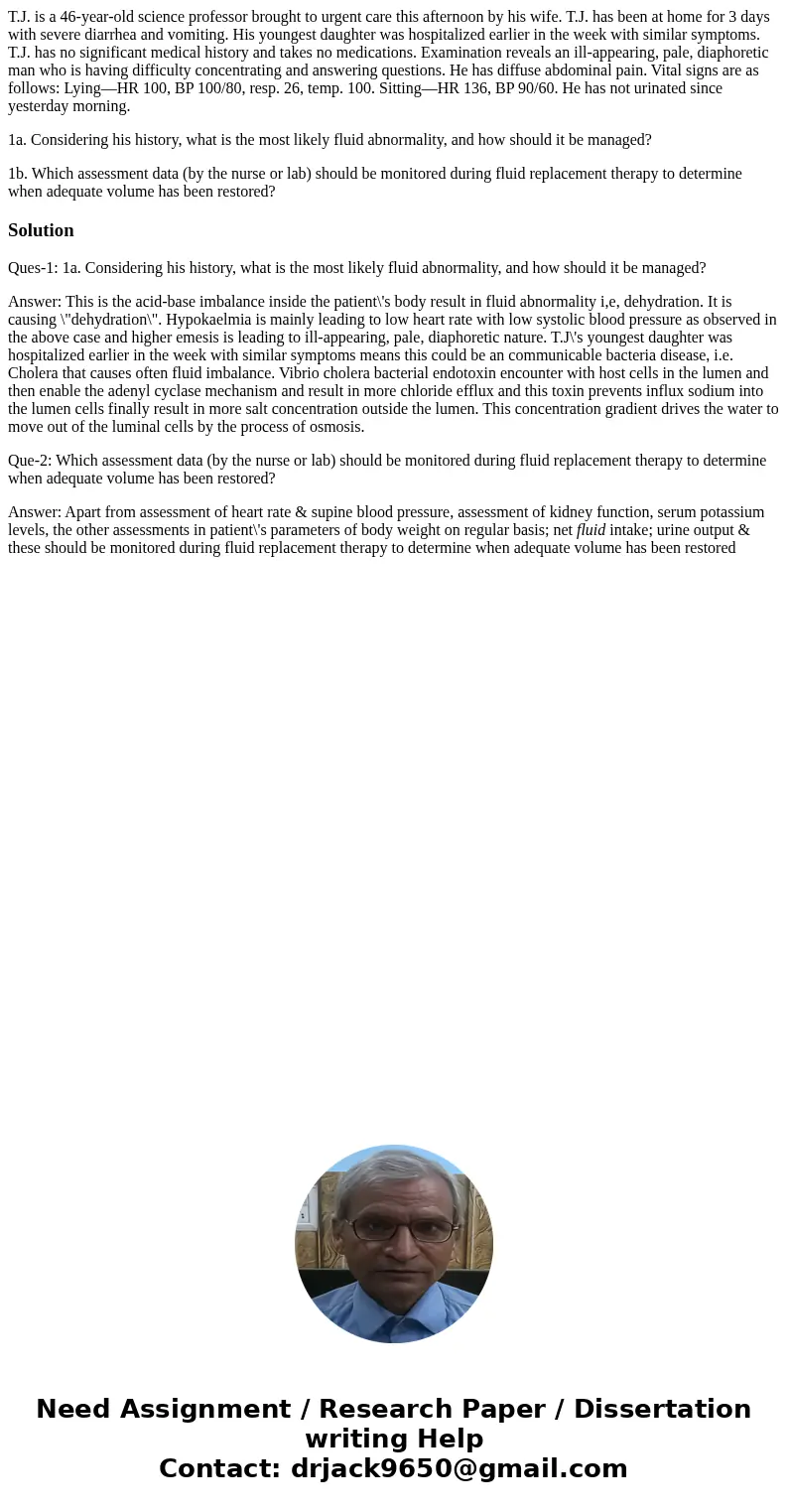TJ is a 46yearold science professor brought to urgent care t
T.J. is a 46-year-old science professor brought to urgent care this afternoon by his wife. T.J. has been at home for 3 days with severe diarrhea and vomiting. His youngest daughter was hospitalized earlier in the week with similar symptoms. T.J. has no significant medical history and takes no medications. Examination reveals an ill-appearing, pale, diaphoretic man who is having difficulty concentrating and answering questions. He has diffuse abdominal pain. Vital signs are as follows: Lying—HR 100, BP 100/80, resp. 26, temp. 100. Sitting—HR 136, BP 90/60. He has not urinated since yesterday morning.
1a. Considering his history, what is the most likely fluid abnormality, and how should it be managed?
1b. Which assessment data (by the nurse or lab) should be monitored during fluid replacement therapy to determine when adequate volume has been restored?
Solution
Ques-1: 1a. Considering his history, what is the most likely fluid abnormality, and how should it be managed?
Answer: This is the acid-base imbalance inside the patient\'s body result in fluid abnormality i,e, dehydration. It is causing \"dehydration\". Hypokaelmia is mainly leading to low heart rate with low systolic blood pressure as observed in the above case and higher emesis is leading to ill-appearing, pale, diaphoretic nature. T.J\'s youngest daughter was hospitalized earlier in the week with similar symptoms means this could be an communicable bacteria disease, i.e. Cholera that causes often fluid imbalance. Vibrio cholera bacterial endotoxin encounter with host cells in the lumen and then enable the adenyl cyclase mechanism and result in more chloride efflux and this toxin prevents influx sodium into the lumen cells finally result in more salt concentration outside the lumen. This concentration gradient drives the water to move out of the luminal cells by the process of osmosis.
Que-2: Which assessment data (by the nurse or lab) should be monitored during fluid replacement therapy to determine when adequate volume has been restored?
Answer: Apart from assessment of heart rate & supine blood pressure, assessment of kidney function, serum potassium levels, the other assessments in patient\'s parameters of body weight on regular basis; net fluid intake; urine output & these should be monitored during fluid replacement therapy to determine when adequate volume has been restored

 Homework Sourse
Homework Sourse